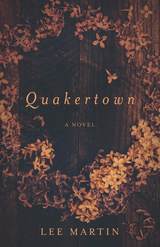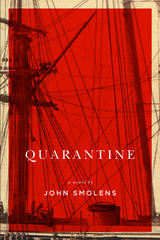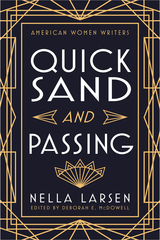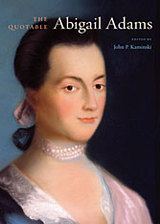5 start with Q start with Q

Based on the true story of a shameful episode in north Texas history, Quakertown draws on the rich texture of the South—the Pecan Creek running along the edges of Quakertown, the remarkable and rare white lilac, and the rising tensions marking each nod and greeting. With strength and a deep wisdom of heart, Martin carves out the delicate story of two families—one white and one black—and the child whose birth brought a gift of forgiveness.
Suffused with Martin’s deep compassion and profound humanity, Quakertown is an unforgettable novel from a master of American prose.


"Quicksand and Passing are novels I will never forget. They open up a whole world of experience and struggle that seemed to me, when I first read them years ago, absolutely absorbing, fascinating, and indispensable."--Alice Walker
"Discovering Nella Larsen is like finding lost money with no name on it. One can enjoy it with delight and share it without guilt." --Maya Angelou
"A hugely influential and insightful writer." --The New York Times
"Larsen's heroines are complex, restless, figures, whose hungers and frustrations will haunt every sensitive reader. Quicksand and Passing are slender novels with huge themes." -- Sarah Waters
"A tantalizing mix of moral fable and sensuous colorful narrative, exploring female sexuality and racial solidarity."-Women's Studies International Forum
Rutgers' all-time bestselling book, Nella Larsen's novels Quicksand (1928) and Passing (1929) document the historical realities of Harlem in the 1920s and shed a bright light on the social world of the black bourgeoisie. The novels' greatest appeal and achievement, however, is not sociological, but psychological. As noted in the editor's comprehensive introduction, Larsen takes the theme of psychic dualism, so popular in Harlem Renaissance fiction, to a higher and more complex level, displaying a sophisticated understanding and penetrating analysis of black female psychology.


John Adams wrote to his wife Abigail that her letters “give me more entertainment than all the speeches I hear. There is more good Thoughts, fine strokes and Mother Wit in them than I hear in the whole Week. An Ounce of Mother Wit is worth a Pound of Clergy.” The Quotable Abigail Adams invites you to enjoy Abigail Adams’s wit and wisdom on a wide range of subjects, drawn from writings throughout her lifetime. Abigail shared her penetrating and often humorous observations with correspondents ranging from friends and neighbors to family members to heads of state, offering lively opinions on human nature, politics, culture, and family life. Selected and arranged by topic, these quotations provide an entertaining introduction to the thought and character of America’s founding mother. They are accompanied by a biographical introduction, source notes, chronology, and a comprehensive index, making this book the primary resource for those meeting this remarkable woman for the first time as well as for her longtime admirers.
“The Service of this Government is not a Bed of Roses, in any department of it.”
“A Nation which does not respect itself, cannot expect to receive it from others.”
“Gentlemen are not half as particular as the Ladies are in their details.”
“No woman of sense will ever make her Husband an object of Ridicule; for in proportion as she lowers him she lessens herself.”
“A woman may forgive the man she loves an indiscretion, but never a neglect.”
“There is no musick sweeter in the Ears of parents, than the well earned praises of their children.”
“Better is a little contentment than great Treasure; and trouble therewith.”
“Time, which improves youth, every year furrows the brow of age."
READERS
Browse our collection.
PUBLISHERS
See BiblioVault's publisher services.
STUDENT SERVICES
Files for college accessibility offices.
UChicago Accessibility Resources
home | accessibility | search | about | contact us
BiblioVault ® 2001 - 2024
The University of Chicago Press









